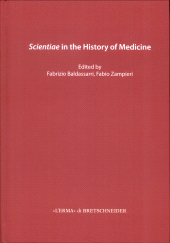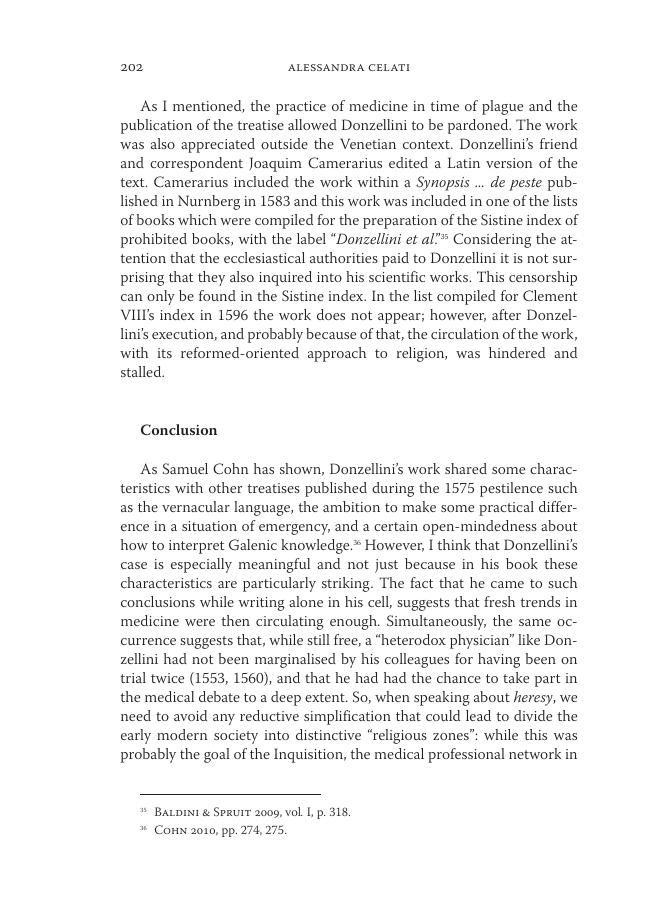The experience of the physician Girolamo Donzellini in the 1575 Venetian plague : between Scientia and heterodoxy
P. 189-215
In this paper I am going to deal with early modern medicine as a “Scientia” against the background of the reception and repression of the Protestant Reformation in Italy. In particular, I will examine the 1575 Venetian plague, by taking into account the personal and scientific experience of the heterodox physician working in the Republic, Girolamo Donzellini, a very well-known medical doctor and humanist in what he himself defined the sixteenth-century Respublica Medicorum. During the pestilence, he was serving an Inquisition life sentence in prison, and it was precisely because of the medical activity he provided in this tragic situation that he was able to re-gain freedom. As a heterodox doctor, a prisoner and the author of a treatise on plague, he provides a good case-study to frame the rise of medicine as a Scientia against a very tangible context: one made of cells, corpses, and pages secretly written under the first lights of the day.
In this paper, thanks to the rare evidence provided by the minutes of Donzellini's fourth trial in 1575/1576, I will describe what a prisoner doctor's daily life was like in times of plague and I will analyse the medical treatise that he wrote during his detention: the Discorso Nobilissimo e Dottissimo Preservativo et Curativo della Peste. By taking into account both Donzellini's life and the book he wrote during the plague, I hope I will be able to provide fresh insights about the intersection among medical, religious and social aspects in the development of sixteenth-century Scientia. [Publisher's text]
-
Chapitres du même volume (disponibles individuellement)
-
Informations
Code DOI : 10.48255/M.9788891320186.09
DISCIPLINES



